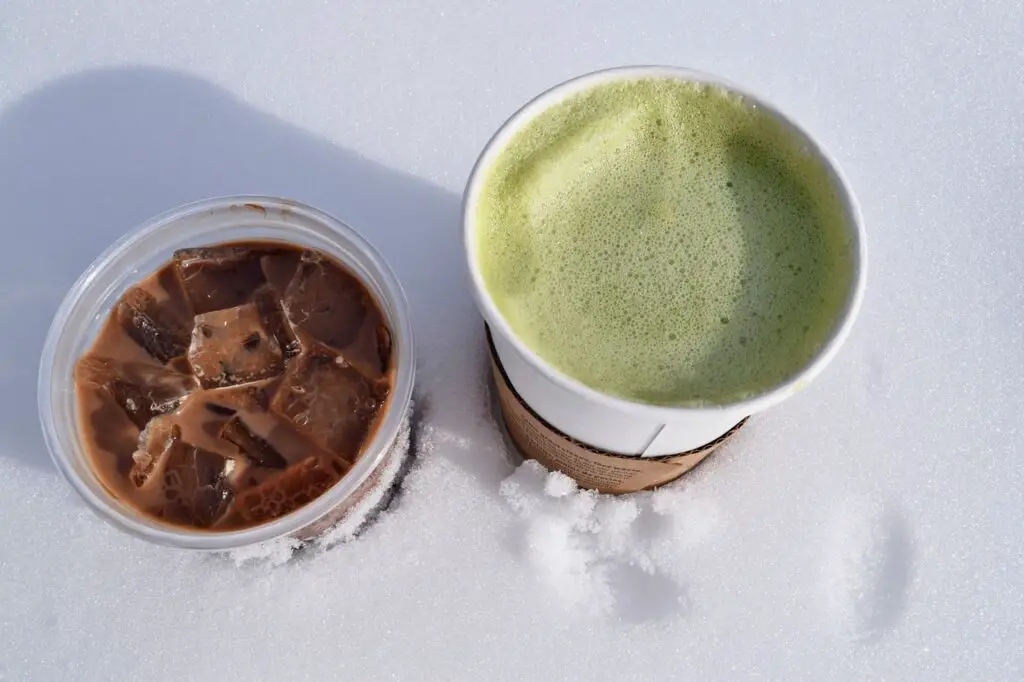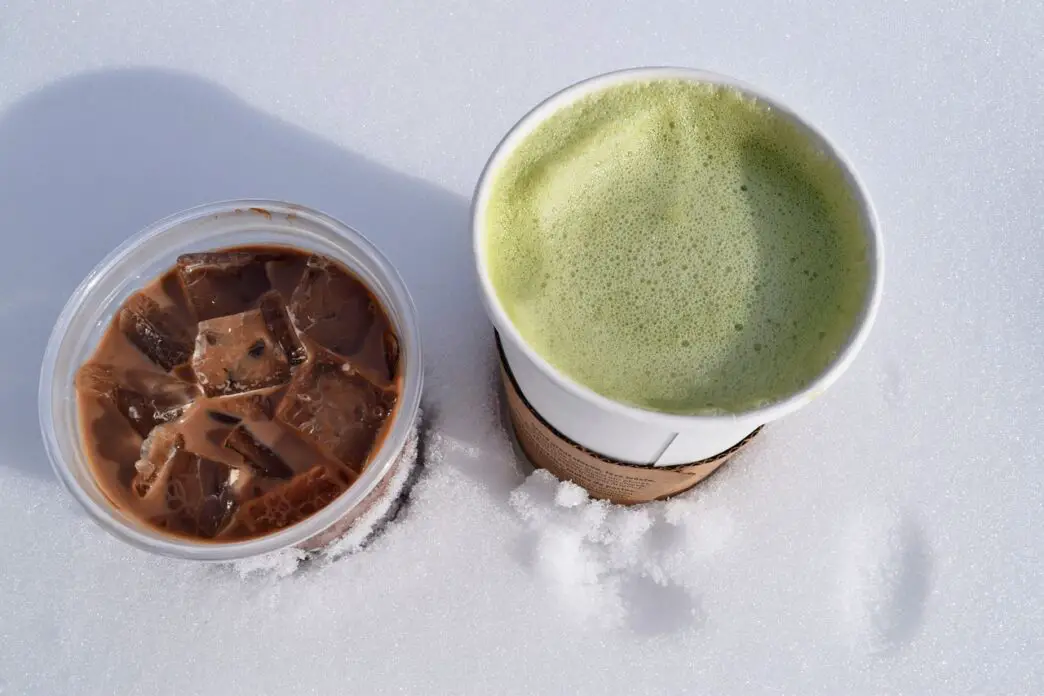
If you’re deciding between matcha and coffee for your daily pick-me-up, you’ve got two solid options with different strengths. Both come from plants and pack caffeine, but they differ in how they affect your body, their flavors, and how you make them. I’ll break it down based on what research and comparisons show, so you can see which fits your routine better.
First, let’s cover the basics. Matcha is a type of green tea from Japan, made by grinding whole tea leaves into a fine powder. You mix it with hot water and drink the leaves themselves, which gives you all the nutrients directly. Coffee comes from roasted beans of the Coffea plant, usually brewed by dripping hot water through grounds or using other methods like espresso.
Caffeine Levels and How They Hit You
Caffeine stands out as a big difference. A typical cup of coffee has 90 to 140 milligrams of caffeine, depending on the brew strength and type. Matcha, by contrast, delivers about 25 to 80 milligrams per serving, often around 70 milligrams for a standard teaspoon. That means coffee gives a stronger, faster kick, which some people like for quick energy in the morning.
But matcha releases caffeine more slowly. It pairs with L-theanine, an amino acid in green tea that calms your mind while keeping you alert. This combo avoids the jitters or crash that coffee can cause for some. People report feeling focused for hours with matcha, without the sharp drop-off. If you need steady energy through work or exercise, matcha might edge out coffee here.
Health Effects Side by Side
Both drinks offer real health perks when you drink them in moderation. Coffee links to lower risks of type 2 diabetes, Parkinson’s disease, and some liver issues, thanks to its antioxidants like chlorogenic acid. It also boosts metabolism, helping with weight management, and sharpens mental function short-term.
Matcha steps up with even higher antioxidant levels because you consume the whole leaf. It has catechins, especially EGCG, which fight inflammation and support heart health. Studies show matcha aids in fat burning during exercise and improves brain function over time. Plus, its L-theanine reduces stress and anxiety, making it a go-to for calm focus.
On the downside, coffee’s acidity can bother stomachs, leading to heartburn or reflux for sensitive folks. Matcha tends to be easier on digestion since it’s less acidic and more alkaline. Both have low calories—under 5 per cup if black—but adding milk or sugar changes that. Neither beats the other overall; it depends on what your body needs. For example, if antioxidants top your list, matcha wins, but coffee holds strong for metabolic support.
Here’s a quick table to compare the main health points:
| Aspect | Matcha | Coffee |
|---|---|---|
| Antioxidants | High (EGCG, catechins) | Moderate (chlorogenic acid) |
| Metabolism Boost | Supports fat oxidation | Increases calorie burn |
| Mental Effects | Calm focus from L-theanine | Quick alertness, possible jitters |
| Digestion | Gentle, alkaline | Can be acidic, irritate stomach |
| Disease Risk | Lowers inflammation, heart risk | Reduces diabetes, Parkinson’s risk |
Taste Profiles and How You Make Them
Flavor plays a big role in what you pick. Coffee varies widely—dark roasts bring bold, bitter notes with hints of chocolate or nuts, while lighter ones taste fruity and acidic. You brew it in minutes with a drip machine, French press, or espresso maker, and it adapts to lattes or iced versions easily.
Matcha tastes grassy and earthy, sometimes with a slight sweetness or umami if it’s high-quality. Preparation takes a bit more effort: you sift the powder, add hot water (not boiling, around 175°F), and whisk it into a froth with a bamboo tool called a chasen. It mixes well into smoothies or baked goods, but the ritual can feel rewarding if you enjoy it.
Some people switch to matcha for better breath—coffee can leave a stale aftertaste, while matcha’s chlorophyll freshens things up. Skin benefits show up too; matcha’s antioxidants fight aging better than coffee’s.
Costs and Availability
Price tags differ. A good bag of coffee beans costs $10 to $20 per pound, making each cup pennies if you brew at home. Matcha runs higher—quality ceremonial grade starts at $20 for 30 grams, which makes about 15 servings, so around $1 to $2 per cup. You find both in stores or online, but matcha needs careful storage to stay fresh, away from light and air.
Potential Drawbacks
Too much of either can lead to issues. High caffeine from coffee might cause insomnia or anxiety. Matcha, while milder, still adds up if you overdo it, and low-quality versions might have lead from soil. Stick to 1-2 cups a day for either.
Which One Fits You?
Choose coffee if you want a strong, quick boost and enjoy bold flavors. Go for matcha if you prefer sustained energy without crashes, plus extra antioxidants. Some people even alternate or mix them in drinks like dirty matcha lattes.
In the end, both matcha and coffee can improve your day. Try them out and see what works—your preference guides the choice. If you have health concerns, talk to a doctor, but based on evidence, neither harms when enjoyed reasonably.

